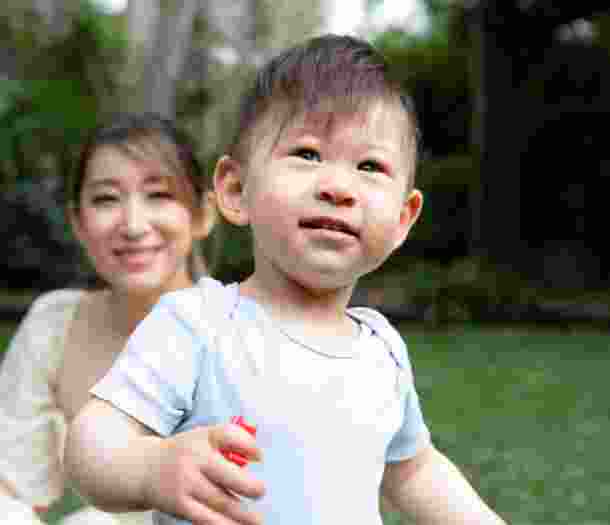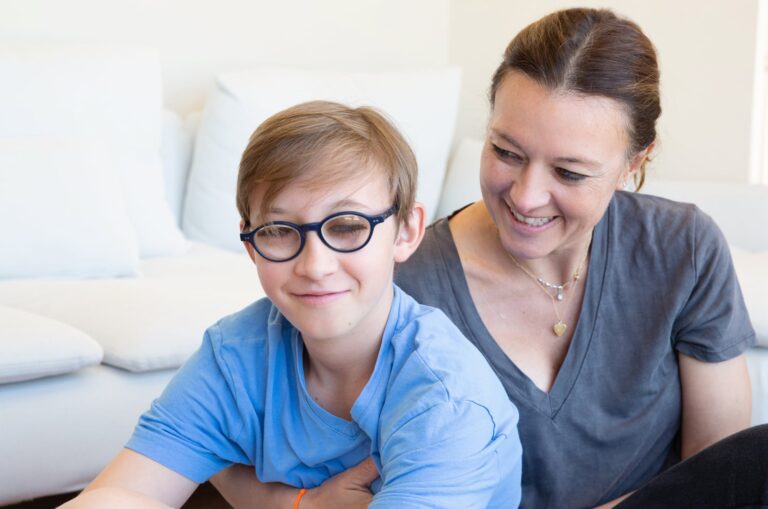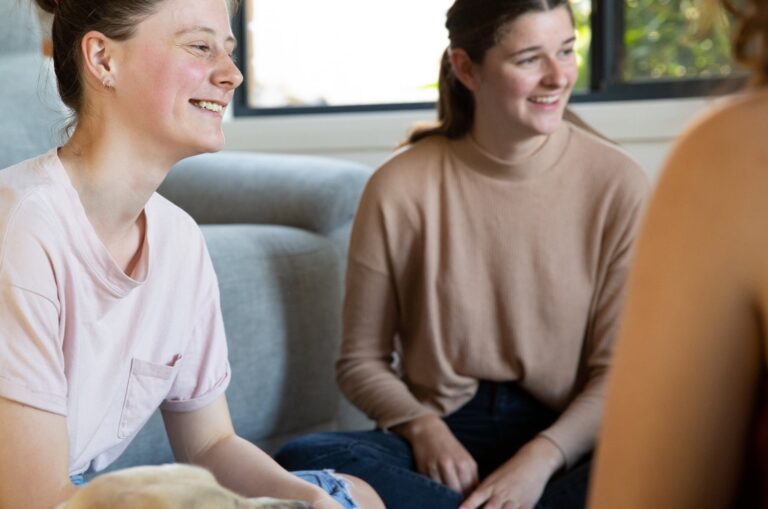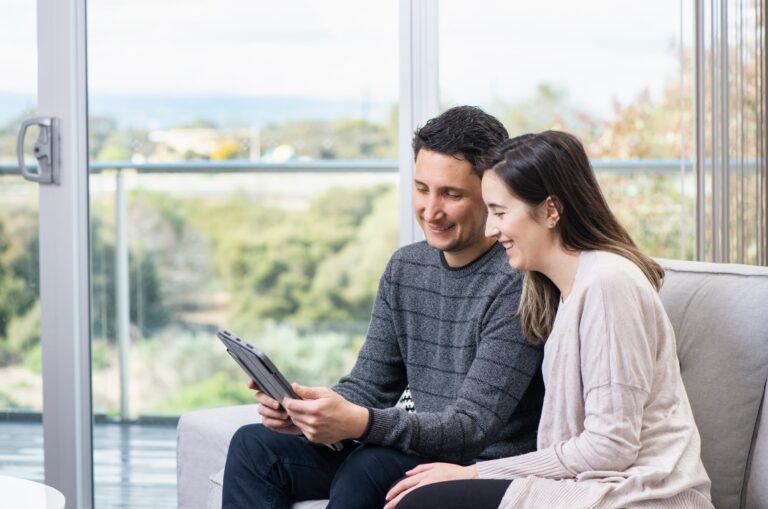What are early childhood services?
Support as your child grows, learns, plays, and explores throughout their early years.
The early years of a child’s life are so important. By exploring, interacting and playing, children learn about the world and those around them. We can provide the tools, knowledge and support you need to encourage your child’s growth and development.
The Early Childhood Service provides support for you and your child, from birth to six years of age (inclusive). Throughout these crucial early years, our team of experienced specialists offers practical and emotional support to build a solid foundation for your child’s future.
You’ll have access to a range of experienced team members who are qualified to work with children from ages 0-6 (inclusive).
To access and receive Early Childhood Services, your baby or child must have a diagnosis of low vision, cortical vision impairment, or blindness. If you are concerned with the way your child sees, we can support you to explore this further.
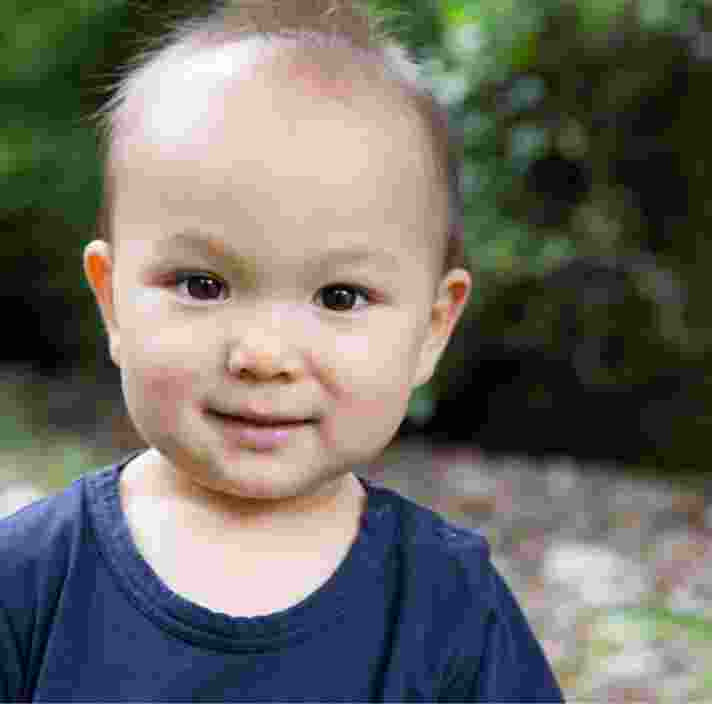
What kind of skills can I learn?
Practical skills and a strong foundation for the future.
A baby or young child with low vision or blindness can struggle to describe what they can or cannot see. Our clinicians use their specialised observation skills and assessment tools to help understand what—and how—your child sees.
With that understanding, we create specialised programs and make recommendations to support your child in making the most of their vision. For children with no functional vision, we can provide support and strategies for your child to overcome challenges and achieve their goals.
Our support will assist your child in:
- Purposeful and independent movement
- Play and social skills
- Thinking and problem-solving skills
- Access to early literacy skills through introduction to braille or large print
- Feeding and dressing skills
- Fostering a meaningful connection with family members
- Supporting you and your child at home, in childcare, and more.
We can also set up your home to make it easier for your child to experience day-to-day activities.
What to expect from the process
When you and your child are ready to get started with Early Childhood Support, here’s what your experience might involve…
Our recommendations will change and adapt as your child grows, to support new aspects of their development including how you can make the most of:
- Story time
- Bath time
- Play time
- Transitioning into kindergarten or childcare.
Request support
Take the first step towards greater independence.
Meet the potential members of your support team
Access a specialised team to support your child’s development.
You’ll have access to a range of experienced team members who are qualified to work with children from ages 0-6 (inclusive).
-
1. An Early Childhood Education Key Worker
This person will help to coordinate various services and supports that you and your child need, as well as develop a plan that addresses your child’s specific needs or goals. They’re a single contact you can count on. -
2. A Paediatric Occupational Therapist
A Paediatric Occupational Therapist will assess your child’s developmental skills, then create a plan to help them improve their abilities and independence where possible. You can learn more about Occupational Therapy here. -
3. An Orthoptist
An Orthoptist can help you to understand your child’s level of ‘functional vision’, (the amount of residual vision they can use in daily life. Once you understand your child’s level of functional vision, an Orthoptist can provide strategies and recommend equipment to best support them. You can read more about Orthoptists here. -
4. An Orientation and Mobility Specialist
An Orientation and Mobility Specialist (O&M) can teach your child foundational skills and techniques to move through the world with greater confidence and independence. They will collaborate closely with you to integrate orientation and mobility training into your child’s daily routines, including how to provide support at home, school, or kinder. You can read more about Orientation and Mobility here. -
5. Assistive Technology Specialists
Assistive Technology Specialists can help your child by recommending appropriate assistive devices and tools for them to interact with and understand the world around them. This includes things to help them learn to read and write, like screen readers, magnification software, tactile graphics, and more. You can read more about Assistive Technology training here.
Ready to continue?
Seems like you have filled this form earlier. Let’s pick up where you left off.

